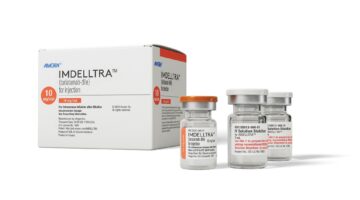A clinical-stage company trying to reverse the damage and stop the progression of diabetes is getting a boost from $1.2 million in grants and a matching round of private funding.
DiaKine Therapeutics Inc.’s lead product, Lisofylline, is a synthetic small molecule compound intended to directly enhance the insulin-producing function of islet cells and block the destruction of islet cells by inflammatory agents called cytokines. Preclinical studies have led the company to believe that its compound has the potential to stop the progression of type 1 diabetes without the use of toxic immunosuppressive drug and to reverse damage it’s already caused.
The company began a phase 1 clinical trial of Lisofylline in 2009. A call to the company seeking comment on the trial’s progress was not returned.

With the Rise of AI, What IP Disputes in Healthcare Are Likely to Emerge?
Munck Wilson Mandala Partner Greg Howison shared his perspective on some of the legal ramifications around AI, IP, connected devices and the data they generate, in response to emailed questions.
DiaKine has just received $2.1 million in grants from the National Institutes of Health and the Iacocca Foundation, and is also raising a $2.1 million round of capital, according to a recent U.S. Securities and Exchange Commission filing. So far, 17 investors have participated, according to the filing.
Therapeutics for type 1 diabetes comprise a $2.7 billion market that’s forecast to grow 6 percent annually for the next five years, according to Global Data. Monitoring diet and blood sugar, and taking insulin is still the standard of treatment, but a variety of others are under development. A vaccine being developed at the Massachusetts General Hospital is in phase 2 clinical trials, and Genzyme and Osiris’ stem cell therapy has shown promise in clinical trials. Another company, ViaCyte, is looking to start clinical trials next year for its therapy, which involves slipping an envelope filled with pancreatic cells under the skin.
In March, DiaKine was acquired by New York-based Islet Sciences Inc., a developer of technologies in the field of transplantation therapy for patients with diabetes. DiaKine says its pipeline of drugs to address type 1 diabetes, type 2 diabetes and latent autoimmune diabetes in adults targets a total addressable market of $13 billion.












